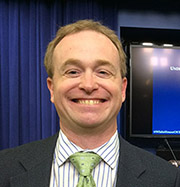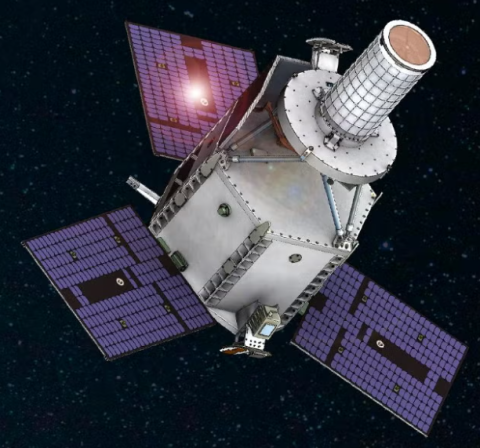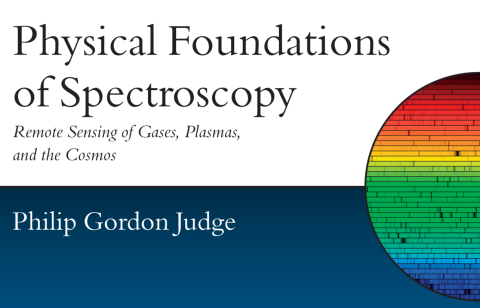Upcoming Events
Latest News

HAO Interim Director, Mike Wiltberger
We welcome Dr. Mike Wiltberger as HAO Interim Director. His 22 years at HAO, combined with his scientific expertise and inter‑agency experience at NSF, make him exceptionally well prepared for this leadership role.

NASA selects NSF NCAR Heliophysics Mission for Continued Development
In December 2025, NASA selected the Chromospheric Magnetism Explorer (CMEx) for an extended period of concept development. The $150 million mission would fill a critical solar observational gap, generating information on conditions that lead to solar eruptions, advancing our knowledge of the solar magnetic field, and improving space weather modeling capabilities. It would also be the first Explorer-sized spacecraft mission ever led by NSF NCAR.

July book release: "Physical Foundations of Spectroscopy" by Philip Judge
"Physical foundations of spectroscopy," by Philip Judge, highlights how spectroscopy is firmly anchored in physical foundations, countering modern trends leading to over-specialization. Published by Oxford University Press as a text in their master series in particle physics, astrophysics and cosmology.
Latest Research Highlights

Quantifying Day-To-Day Variability of the Ionosphere and Thermosphere Induced by Upward Propagating Migrating Diurnal and Semidiurnal Tides
Tianyang Hu, Liying Qian, Nicholas Pedatella, Wenbin Wang, and Quan Gan use a whole atmosphere model, the Whole Atmosphere Community Climate Model with thermosphere‐ionosphere eXtension (WACCM-X), to investigate the role of upward propagating migrating diurnal and semidiurnal tides on the day-to-day variability in the I-T system.

Advancing Heliophysics and Space Weather Modeling through Open Science
HAO first author, Michael Wiltberger, et. al. highlight a community-wide effort to understand how “open science” practices can better support research and forecasting in heliophysics and space weather.

Refining the Magnetic Field Estimate for the Solar Polar Region
Bryan Yamashiro, Xudong Sun, Ivan Milic, Carlos Quintero Noda, Jiayi Liu, Adur Pastor Yabar, Rebecca Centeno, Milan Gosic, and Kai Yang analyze a raster map of the southern polar region taken by the Hinode Spectro-Polarimeter, utilizing the Stokes Inversion based on Response functions code. The inversions provide height-dependent vector magnetic field maps between optical depths log(tau) = -2 and 0.